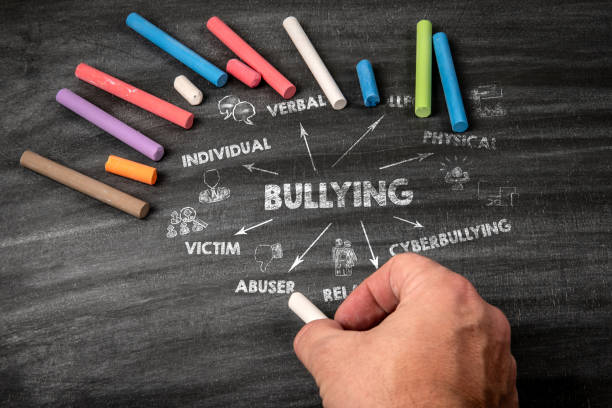Introduction to Internet Safety
So, we all know how awesome the internet is, right? It’s like this huge playground where you can find anything from funny cat videos to cool games and learn about all sorts of stuff. But, just like any playground, there are some things you need to be careful about. Okay! imagine this: you are walking around a new neighborhood, and you see some cool shops and friendly faces, but you also notice some shady people and strangers hanging around. Well, that’s kind of what the internet is like. It is full of amazing things, but there are also some not-so-nice people and places out there.
That is why it’s super important to know how to stay safe online. Just like your parents teach you to look both ways before crossing the street, they also need to teach you how to be smart and safe when you’re surfing the internet. And that’s what we are going to talk about i.e. how to stay safe in this internet safety guide for kids. So, grab a seat and let us dive into the world of internet safety!
Understanding Online Threats for Kids
Cyberbullying
Cyberbullying is when someone uses the internet or social media to hurt, harass, or embarrass others. Sadly, kids can be targets of cyberbullying, and it can happen through various online platforms. Here is what it can look like:
Mean Messages or Comments: Bullies might send mean messages or comments to kids through social media, email, or messaging apps. They might say hurtful things or spread rumors to make the child feel bad.
Sharing Embarrassing Photos or Videos: Bullies might share embarrassing photos or videos of kids without their permission. This can be really humiliating for the child, especially if the images spread widely online.
Impersonation: Some bullies might create fake accounts pretending to be the child and post mean things or interact with others in a hurtful way. This can damage the child’s reputation and cause confusion among friends.
Exclusion: Bullies might deliberately exclude a child from online groups or activities, making them feel left out and lonely. This can happen in online games, social media groups, or chat rooms.
Threats or Harassment: In severe cases, bullies might send threats or harass a child online. This can be really scary and can make the child feel unsafe even in their own home.
Cyberbullying can have serious consequences for kids, including emotional distress, low self-esteem, and even physical harm in extreme cases. It is important for kids to know how to handle cyberbullying and to reach out to trusted adults for support if they experience it. Parents and guardians can also help by monitoring their child’s online activities and teaching them how to stay safe and respectful online.
Phishing Scams: How They Trick You Online
Imagine getting a message or email that looks like it’s from a friend, a company, or a website you trust. It might ask for your password, credit card number, or other personal info. But here’s the catch: it’s not really from who you think it is. It’s from a scammer trying to steal your information. Here is how they do it:
Fake Messages: Scammers send messages that look real, like they’re from your bank, your favorite online store, or even a social media site. They might say something urgent, like “Your account has been hacked! Click here to fix it.”
Tricky Links: Inside the message, there’s usually a link that looks innocent, like it’ll take you to your account or to a fun website. But if you click it, you’re taken to a fake site that looks just like the real one. And when you enter your info, the scammer gets it.
Urgent Requests: They might say something scary or urgent to make you act fast without thinking. They want you to panic and give them what they want before you realize it’s a scam.
Online Predators
Online predators are people who use the internet to try to trick or harm others, especially kids. They pretend to be someone they’re not to gain the trust of kids and then try to do bad things. Here’s what you need to know:
Friendly Faces: Sometimes, online predators pretend to be friendly and nice to gain the trust of kids. They might pretend to be another kid, a teacher, or even someone famous.
Tricky Tactics: Once they gain a kid’s trust, predators might try to get them to share personal information like their address, phone number, or even meet up in person. They might use games, social media, or chat rooms to do this.
Stay Safe: It’s essential to know how to stay safe online. Never share personal information with strangers online, like your full name, address, or where you go to school. Always tell a trusted adult if someone online makes you feel uncomfortable or asks you to keep secrets.
Talk Openly: It’s crucial to talk openly with trusted adults about your online activities. They can help you understand what’s safe and what’s not and support you if you ever feel scared or uncomfortable online.

| Call 866-861-4084 for Internet Deals |
How to Keep Your Kids Safe from Online Threats
Talk About It: Start by having open and honest conversations with your kids about online safety. Let them know about the potential dangers, like strangers pretending to be friends or scams trying to trick them.
Set Rules: Establish clear rules for internet use, such as which websites they can visit, how much time they can spend online, and who they can communicate with. Make sure they understand why these rules are in place and the consequences for breaking them.
Supervise: Monitor your kids’ online activities regularly, especially when they’re younger. Keep computers and other devices in common areas of the house where you can keep an eye on them.
Teach Privacy: Teach your kids to protect their privacy online by not sharing personal information like their full name, address, phone number, or school name with strangers. Remind them that not everyone online is who they say they are.
Be Skeptical: Encourage your kids to be skeptical of online offers that seem too good to be true or require them to provide personal information. Teach them to question and verify before clicking on links or giving out any details.
Use Parental Controls: Take advantage of parental control features available on devices and internet browsers to restrict access to inappropriate content and monitor your kids’ online activities.
Stay Involved: Stay involved in your kids’ online lives by playing games with them, watching videos together, or even following them on social media. This allows you to stay informed and open up opportunities for discussing online safety.
Encourage Communication: Let your kids know they can come to you if they ever feel scared, uncomfortable, or confused about something they encounter online. Foster an environment of trust and support where they feel safe sharing their concerns.
Conclusion
So, my young friends, as we wrap up our Internet Safety Guide for Kids, remember this: the internet is an amazing place full of endless possibilities, but it’s also important to stay safe while exploring it. We’ve learned that being cautious online means not sharing personal information with strangers, being skeptical of offers that seem too good to be true, and talking to a trusted adult if something doesn’t feel right.
By following the tips and guidelines we’ve discussed, you can enjoy all the wonders of the online world while staying protected from its potential dangers. Always remember to use your instincts, trust your gut, and never hesitate to reach out for help if you ever feel unsure or uncomfortable online.
So go ahead, explore, create, and connect, but always keep safety in mind. With the right knowledge and awareness, you can navigate the digital landscape confidently and responsibly. Stay safe, stay smart, and have fun exploring the vast wonders of the internet!
FAQs (Frequently Asked Questions)
At what age should I start teaching my child about internet safety?
It’s never too early to start teaching your child about internet safety. Even young children can benefit from learning about the importance of privacy and being cautious online.
How can I monitor my child’s online activities without invading their privacy?
Parental control software can help you monitor your child’s online activities without invading their privacy. These tools allow you to set guidelines and restrictions while still allowing your child some level of independence.
What should I do if my child encounters inappropriate content online?
If your child encounters inappropriate content online, remain calm and address the situation immediately. Encourage your child to close the browser window and discuss why the content was inappropriate.
How can I teach my child to be skeptical of information they find online?
Teach your child to question the source of information they find online and look for credible sources to verify the information. Encourage critical thinking and discuss how to evaluate the reliability of online sources.
What should I do if my child becomes a victim of cyberbullying?
If your child becomes a victim of cyberbullying, offer them emotional support and reassurance. Encourage them to block the bully and report the behavior to you and the relevant authorities.

Meet Jennifer Harper, a wordsmith extraordinaire who has been shaping the digital landscape with her creative prowess for the past two years. Not just a content writer; she is a storyteller who brings the content to life. Her passion for internet trends, memes, and the ever-evolving world of entertainment is evident in every piece she creates. Jennifer doesn’t just follow trends; she sets them.